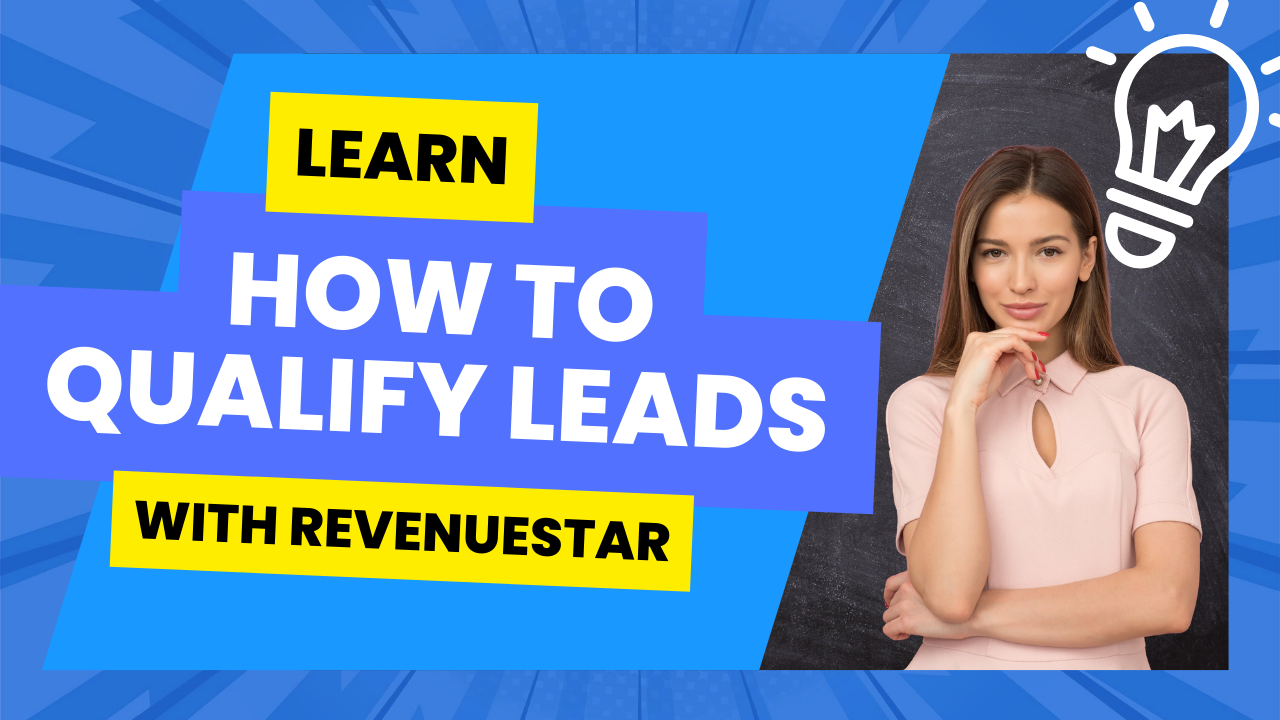How to Qualify New Leads
A crucial step in the sales process that ensures you're focusing your efforts on the prospects most likely to convert

A crucial step in the sales process that ensures you're focusing your efforts on the prospects most likely to convert

So, you're lucky enough to have a list of potential leads – but how do you separate the wheat from the chaff?
In fact, a recent study shows that only 25% of marketing-generated leads are typically of a
high enough quality to immediately advance to sales. (Gleanster Research)
We don't have the time to spend on leads that are not a good fit. It would be better to focus on the good leads.
Enter sales lead qualification, a crucial step in the sales process that ensures you're focusing
on the prospects most likely to convert. In this blog post, we'll walk you through the ins and outs of sales
lead qualification, from understanding what it is to implementing effective strategies for identifying qualified prospects.
Sales qualification is the process of evaluating potential leads to determine their likelihood of becoming paying customers. It involves assessing factors such as fit, interest, budget, and authority to make a purchasing decision. Essentially, it's about separating the serious buyers from the tire-kickers.
Sales qualification is important for several reasons. Firstly, it helps sales teams prioritize their efforts by focusing on leads with the highest likelihood of conversion. This maximizes efficiency and ensures that resources are allocated effectively. Additionally, qualification reduces wasted time and effort chasing after leads that are unlikely to convert, ultimately leading to higher conversion rates and increased revenue.
By understanding their needs and motivations, you can position your offering as the solution they've been searching for.
A qualified prospect is a lead that meets your Ideal Customer Profile and has demonstrated a genuine interest in your product or service. They have a pressing business problem that your offering can solve, the authority to make purchasing decisions, and the budget and timeline to move forward.
Disqualifying prospects is just as important as qualifying them. It's essential to recognize when a lead is not a good fit for your offering or is unlikely to convert. This could be due to mismatched needs, lack of budget or authority, or an unrealistic timeline. By disqualifying leads early on, you can focus your efforts on more promising opportunities and avoid wasting time on dead ends.
A qualification framework is a tool that salespeople can use to determine whether a prospect is likely to become a customer. Sales qualification frameworks help guide sales teams to asking the right information to qualify a prospect. Here are three popular Lead Qualification Frameworks:
BANT (Budget, Authority, Need, Timeline): BANT is a classic lead qualification framework that focuses on four key criteria: budget (does the prospect have the budget to make a purchase?), authority (does the prospect have the authority to make a purchasing decision?), need (does the prospect have a pressing business need that your product or service can address?), and timeline (what is the prospect's timeline for making a decision and implementing a solution?).
MEDDIC (Metrics, Economic Buyer, Decision Criteria, Decision Process, Identify Pain, Champion): MEDDIC is a comprehensive lead qualification framework that delves deep into the prospect's organization and decision-making process. It involves assessing metrics (quantifiable goals or objectives), identifying the economic buyer (the person with the authority to make purchasing decisions), understanding decision criteria and process, identifying pain points, and securing a champion within the organization to advocate for your solution.
ANUM (Authority, Need, Urgency, Money): ANUM is a simplified lead qualification framework that focuses on four key criteria: authority (does the prospect have the authority to make a purchasing decision?), need (does the prospect have a pressing business need that your product or service can address?), urgency (is there a sense of urgency or timeline for implementing a solution?), and money (does the prospect have the budget or financial resources to make a purchase?).
Sales lead qualification is a critical step in the sales process that ensures you're focusing your efforts on leads with the highest likelihood of conversion. By creating an Ideal Customer Profile, identifying the prospect's business problem, asking qualifying questions, and using effective qualification frameworks, you can separate the serious buyers from the tire-kickers and drive better results for your business. So, roll up your sleeves, get to know your leads, and watch your sales soar.
In today's competitive landscape, effective sales strategies are essential for business success. Attention's email sequences offer a powerful tool for nurturing leads, driving engagement, and closing deals. By leveraging the advantages of email automation, personalization, and scalability, you can create targeted sequences that guide prospects through the sales journey and ultimately drive revenue for your business. So why wait? Start crafting your email sequences today and unlock the full potential of your sales process.
New to Attention and not sure where to start? We'll walk you through the basic uses so you know what to expect along the way.
Attention recommendations help by suggesting next actions that help you focus on critical, revenue-generating tasks for each deal.
Quick guides and more to help you be successful with Attention